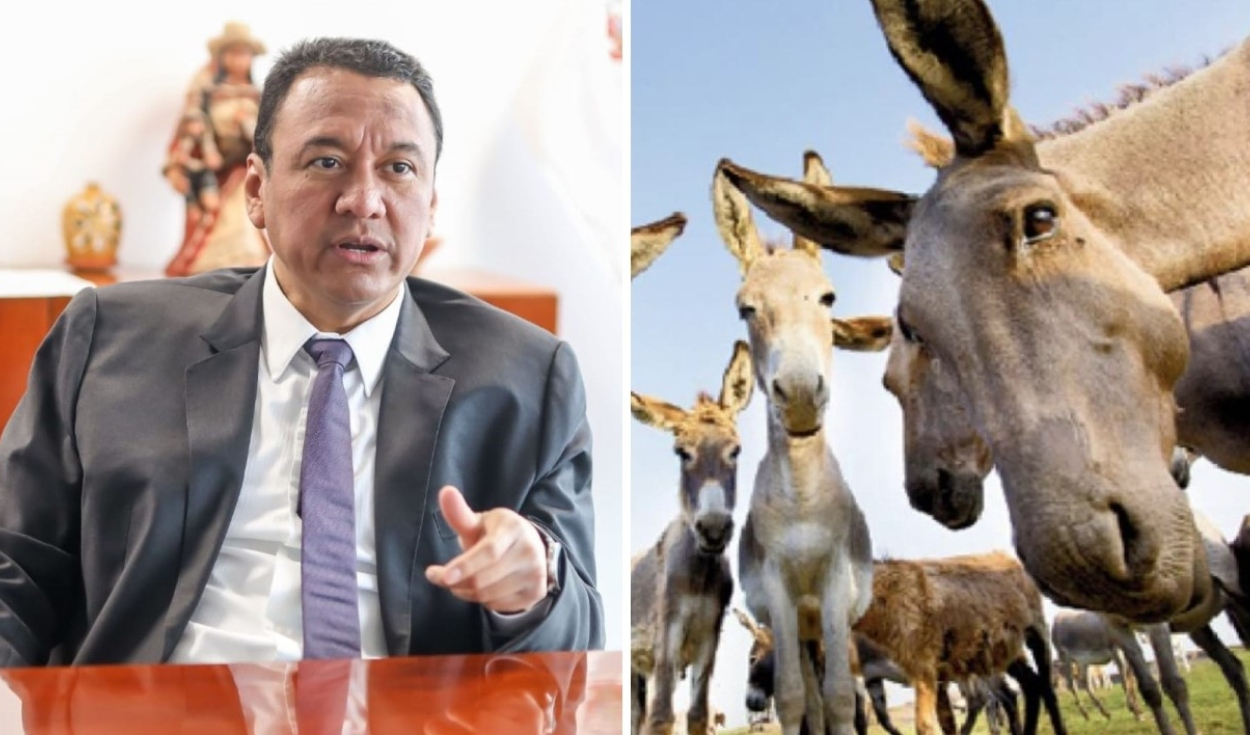
The announcement that our country will export donkey meat to China It provoked a series of reactions from the Association of Beef Producers and specialists in the field, who warned of the limitations of the proposal due to the fact that there is little tradition of mass consumption or export of this product.
In relation to this controversial issue that was announced by the Minister of Foreign Trade and Tourism, Elizabeth Galdo, the head of Agrarian Development, Ángel Manero, spoke out to communicate further progress regarding trade relations with China and to make some clarifications on the signing of phytosanitary protocols for the export of various products, including donkey meat.
Midagri maintains that the export of donkey meat is not in the national interest
Within the framework of the Peruvian government’s visit to China, three important protocols were signed that determine the phytosanitary requirements for export of donkey meattable grapes and other products. In this context, the Minister of Foreign Trade, Elizabeth Galdo, stated that our country will send meat from this animal to the Asian country due to its demand.
“By signing phytosanitary agreements, some additional rules have been established to clarify and ensure that products that were not previously allowed to enter China can do so. For example, vegetables. Some people find it funny, but donkey meat is in demand in China and is one of the products that is also being exported. We have to produce what is in demand and where there are possibilities,” he said on Channel N.
This bombastic statement earned him a series of observations from the National Association of Beef Producers, who warned that the production of donkey meat in our country is minimal and there is no tradition of mass consumption or export, since this animal is mainly used for cargo purposes in rural areas.
Regarding the viability of the proposal, the Minister of Agrarian Development, Ángel Manero, told Canal N that the export of donkey meat “is a very small and profitable business, but it is not of national interest.” In this regard, he specified that this type of negotiations are initiated by the interest of private companies, which in the case of China, use it for medicinal purposes.
“Donkey meat is hardly consumed in China. People might think that it is consumed, but it is a very small consumption, a niche, folkloric, medicinal product that is not widespread. Generally, it starts with the interest of a private individual, in this case, a Chinese private individual, who has requested that this procedure be initiated,” he explained.
Likewise, the head of Midagri made it clear that our country “is not a major producer of meat,” but he said that work is being done to develop this industry, as was done with products such as blueberries and avocados. Despite this, he considered that “if there is an interested private individual who wants to do business, we must support him.”
“If there was private interest, it could be done with private investment. [Las exportaciones de carne de burro] They don’t even appear in the statistics. They must be below a million dollars,” he said.
What other health protocols were signed?
Within the framework of the work agenda developed at the People’s Palace in Beijing, phytosanitary protocols were signed to strengthen trade and the comprehensive strategic partnership between Peru and China. These are:
- The export of donkey meat and its derived products.
- The export of donkey and horse skins for processing.
- Update phytosanitary protocols to export table grapes by air to the Chinese market.
In addition to these, four phytosanitary protocols were requested for export:
- Frozen fruits: blueberries, mangoes, avocados and grapes.
- Pecans.
- Grenades.
- Beef and pork.
Source: Larepublica
Alia is a professional author and journalist, working at 247 news agency. She writes on various topics from economy news to general interest pieces, providing readers with relevant and informative content. With years of experience, she brings a unique perspective and in-depth analysis to her work.











